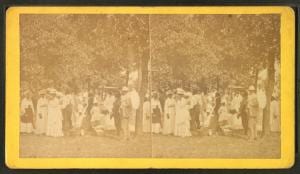
I am a small government conservative, supportive of the free market. More fundamentally, I am an orthodox Christian in the global church and this too has implications. As a result of being a global Christian, I know a good many Christians that support (for example) more socialist visions of economics and larger government. Some are critical of liberal democratic forms of government and argue for alternatives ranging from far larger Christian input than I support in governance to no involvement. My church is being martyred by several regimes, some atheist, some religious. My co-religionist in the nation of Georgia often does not have the same perspective as a fellow believer in China.
When I disagree, why?
A former student asked me, facing a vote for President of the United States, what books I have read, will re-read, and then read again to make a decision regarding my vote. He is, I think, in no doubt about what I will do, but knows my work rightly forbids any political endorsements or non-endorsements. He is interested in what I think might be good to read if one is a Christian, orthodox, and part of a global church and facing the election of 2020.
My own calling in this time of pandemic has been to work for kindness and forgo for the moment any partisan or even much cutting apologetic rhetoric. There are prophets called to both kinds of discussion, even now, but that is not my own calling. As a result, where possible, I have tried not to pick polemics. To further answer his question, I have picked no more than two books for each question one must ask in voting. My work is teaching older books, the foundation texts, for anyone who works and thinks in the English language and lives in the American Republic. There are other equally great texts for other languages and culture, but my situation is my own and shared by tens of millions.
The following books, all will endure this election, entail my vote, if I am reading them correctly. (Ah! The doubt that I am reading correctly is one reason to know that if I wish to be just, then I must live by faith and not certainty!) As a Christian, my goal is to be in conformity to Sacred Scriptures, so one should assume those holy books are here as a foundation. Start with the books of Amos and James. This list is necessarily abbreviated, hardly anyone will read even this short list! Cutting works was much harder than adding them. One rule is that I had to have read them multiple times.
Republic (Plato) What is justice? If we cannot see justice in a person, then perhaps a city in words can help? If not, then we must look to the Divine. No government is good without justice.
Second Treatise on Government (Locke) What are the limits of government for a Christian? Is rebellion ever permissible? Christian apologist John Locke gives foundational answers to these questions for Americans. Sadly, he also defended slavery and so his work needed important theological enrichment that only came to America from thinkers like Lincoln and Douglass.
Reflections on the Revolution in France (Burke) A revolution often will go wrong. What of the human things? What of the arts? What of the wisdom of the past? Burke cautions about revolutionary zeal that believes any given generation has all the answers.
Second Inaugural (Lincoln) This is the Christian vision of government that acknowledges divine Providence and the fact that God is only on the side of justice.
What to the Slave is the Fourth of July? (Douglass) The XIII, XIV, and XV amendments put words to the best vision of the United States. Douglass, with help from friends like US Grant, got the job done.
Aint I a Woman? Sojourner Truth shows that myths about “women” did not fit the American reality and there was more work to be done.
Laborem Exercens (John Paul II) An extended Christian reflection on labor and the economy from a man who saw the Marxist and fascist errors and rejected both.
Are Women Human? (Sayers) This essay guts those who would forget that humanity is expressed in two equal voices: male and female.
That Hideous Strength and Abolition of Man (Lewis) The problem of the political inner ring that impacts left and right exposed in a novel and the best essay of the twentieth century.
If I were to pick a “non-great” book to defend the traditional conservative vision, try Russell Kirk , these lectures on the human body by John Paul II, or Erik von Kuehnelt-Leddihn Liberty or Equality.
American orthodox Christians defend human life, decry racism, seek justice for workers, wish to steward . Which candidate is best for the totality of our issues? Which is fit for office? Is anyone? If not, which is most likely to allow us to continue to pursue full justice?












